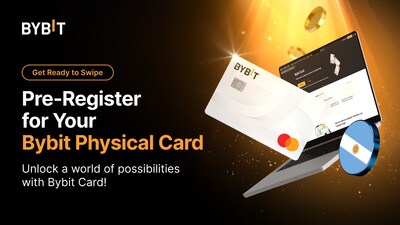A savings account helps you securely set aside money for the future. By opening a dedicated savings account, you keep your savings separate from the money you use to pay your bills. Because a savings account pays interest, your money grows over time. Here’s what you need to know about the best savings accounts.
Quick Look at the Best Banks for Savings Accounts
- Best for High Rates: EverBank
- Best for Easy Access to Your Funds: Synchrony Bank
- Best for Automating your Savings: Chime
- Best for Multiple Savings Options: CIT Bank
- Best for In-person Banking: Chase Bank
What Are the Best Savings Accounts?
The best savings accounts pay a competitive interest rate and charge no fees. They also protect up to $250,000 of your deposits per account type with Federal Deposit Insurance Corp. (FDIC) insurance. Below are some of the best features you’ll find in savings accounts:
1. Best for High Rates: EverBank
The EverBank Performance Savings Account is a high-yield savings account with a 5.15% annual percentage yield (APY). You can open an EverBank savings account online. If you live in Florida, you can visit one of EverBank’s financial centers for assistance.
- No minimum deposit to open an account
- No minimum balance required
- No monthly fees
- Mobile app deposits up to $50,000 per day
- Delayed availability for deposits over $5,525
- Variable interest rate
2. Best for Easy Access to Funds: Synchrony Bank
-
securely through Synchrony Savings’s website
Best For:
Savings for All Account Balances
With Synchrony Bank, you can open a high-yield savings account online with no minimum deposit required. Unlike other banks, you can access your savings and make purchases with an optional ATM card.
- Optional ATM card to access funds and make purchases
- No minimum balance
- No monthly service fees
- Savings accounts may be automatically closed if your balance remains at $0 for over 60 days
- Mobile check deposits are limited to $2,000
- Rate is variable
- No physical branch locations
3. Best for Automatic Savings: Chime
-
securely through Chime’s website
*Early access to direct deposit funds depends on the timing of payer’s submission of deposits. Chime generally posts such deposits on the day they are received which may be up to 2 days earlier than the payer’s scheduled payment date.
Chime is a financial technology company that offers online banking services through Stride Bank or The Bancorp Bank. If you struggle to save money, you can enroll in Chime’s automatic savings programs. Round up purchases you make through Chime’s debit card and have this difference deposited directly into your savings account. Or, automatically transfer 10% of your direct deposit into savings.
- Easy options to help you save money
- No minimum balance requirement and no monthly fees
- Must have a Chime checking account to open a savings account
- Lower APY than competitors
- May be required to direct deposit your checks to access Chime’s mobile check deposit service
- No physical locations
- Best for Multiple Savings Account Options: CIT Bank
4. Best for Multiple Savings Account Options: CIT Bank
-
securely through CIT Bank Savings’s website
Best For:
Savings and Money Market Accounts
CIT Bank offers flexibility with three savings account options. Depending on the type of account you open and the deposit amount, you could earn a higher APY if you carry a minimum balance or deposit $100 per month.
- Multiple savings account options
- Easy to open online
- No monthly maintenance fees
- Minimum deposit of $100 to open an account
- May need to keep a minimum balance in your account to earn a higher APY
- Some savings accounts limit you to six transactions per month
- No ATM locations
5. Best for banking in person: Chase Bank
Chase Bank is a national bank with branches in every state and an extensive ATM network. With Chase, you have the flexibility of opening a savings account online or at your local branch. While you may get a better rate and pay fewer fees through an online bank, Chase may be a better fit if you prefer to bank in person.
- Comprehensive offering of financial products
- 4,700-plus branch locations
- Bank online or in person
- Lower APY than many online savings accounts
- May incur monthly fees
Savings Account Overview: What It Is and How It Works
A savings account holds deposits that you don’t plan to spend soon. Depending on the financial institution, you can open a savings account online or at a local bank branch or credit union. Savings accounts pay interest on your balance monthly. Your balance grows over time as you make deposits and earn interest and decreases if you withdraw funds.
Different Types of Savings Accounts
- Traditional savings accounts: Most local banks and credit unions offer traditional savings accounts. Traditional accounts pay interest, but the rates are typically less than other savings account options.
- Online savings accounts: An online savings account works similarly to a traditional savings account, except that you manage your account online.
- High-yield savings accounts: A high-yield savings account pays a higher APY than a traditional one.
- Money market accounts: Combines the benefits of checking and savings into one account. You can write checks and make purchases while still earning your balance interest.
- Health savings accounts (HSAs): An HSA is a tax-advantaged account where you can save money for qualified medical expenses. Contributions made are deductible for tax purposes. Distributions are tax-free if the money is spent on qualified medical expenses.
- Joint savings accounts: Two or more people own and manage the funds in a joint savings account.
Pros and Cons of Savings Accounts
Opening a savings account has plenty of benefits, including:
- Easy way to earn money on your balance without doing anything
- Less risky than investing in stocks or mutual funds, which can lose value if the market experiences a downturn
- Safe way to set money aside for future financial goals, such as a down payment on a home or your child’s education
- Most savings accounts are FDIC-insured, which protects up to $250,000 of your deposits
Despite the benefits, savings accounts also have drawbacks.
- You could be penalized if you make too many monthly withdrawals from your savings account.
- The interest rates for high-yield accounts are variable and subject to change. You could earn more in the stock market or with a fixed-rate savings account.
- Some savings accounts require a minimum balance. You could be charged a fee or earn a lower APY if you fall below the minimum.
- You may incur monthly maintenance fees.
How to Choose the Best Savings Account
Savings accounts offer different features. Keep your financial goals in mind when shopping around for a savings account. It’s a good idea to compare different banks’ interest rates and fees when picking the best savings account for you.
Consider what other banking requirements are necessary. Some savings accounts require that you keep a minimum balance or make monthly deposits. If you can satisfy these requirements, you could land a higher APY. If not, you might be charged a fee.
How to Open a Savings Account
You can open a savings account online or at your local bank or credit union. You must provide personal information such as your name, address, birth date and Social Security number. You’ll need to provide proof of your identity, such as a driver’s license or passport.
You’ll need to deposit money into the savings account once it has been opened. If you open your savings account at a local bank or credit union branch, you can fund your new account with cash, check or by transferring money from another bank account. When transferring funds to open an online savings account, you typically link to another bank account.
Grow your Earnings with the Best Savings Account
Opening a savings account can help you reach your financial goals. You can develop the discipline of setting money aside for the future, plus watch your balance grow as you earn interest monthly. Savings accounts are a useful tool to set a solid foundation for your finances.
Frequently Asked Questions
A
When you deposit money into an FDIC-insured savings account, up to $250,000 of your funds per account type are insured in case of a bank closure.
A
The interest you earn on deposits held in a savings account is taxable. You’ll need to report these on your tax return and pay any tax owed.
A
The amount of money to keep in a savings account depends on your financial situation. To protect against financial emergencies, you can build up your savings to cover at least three to six months of expenses.






